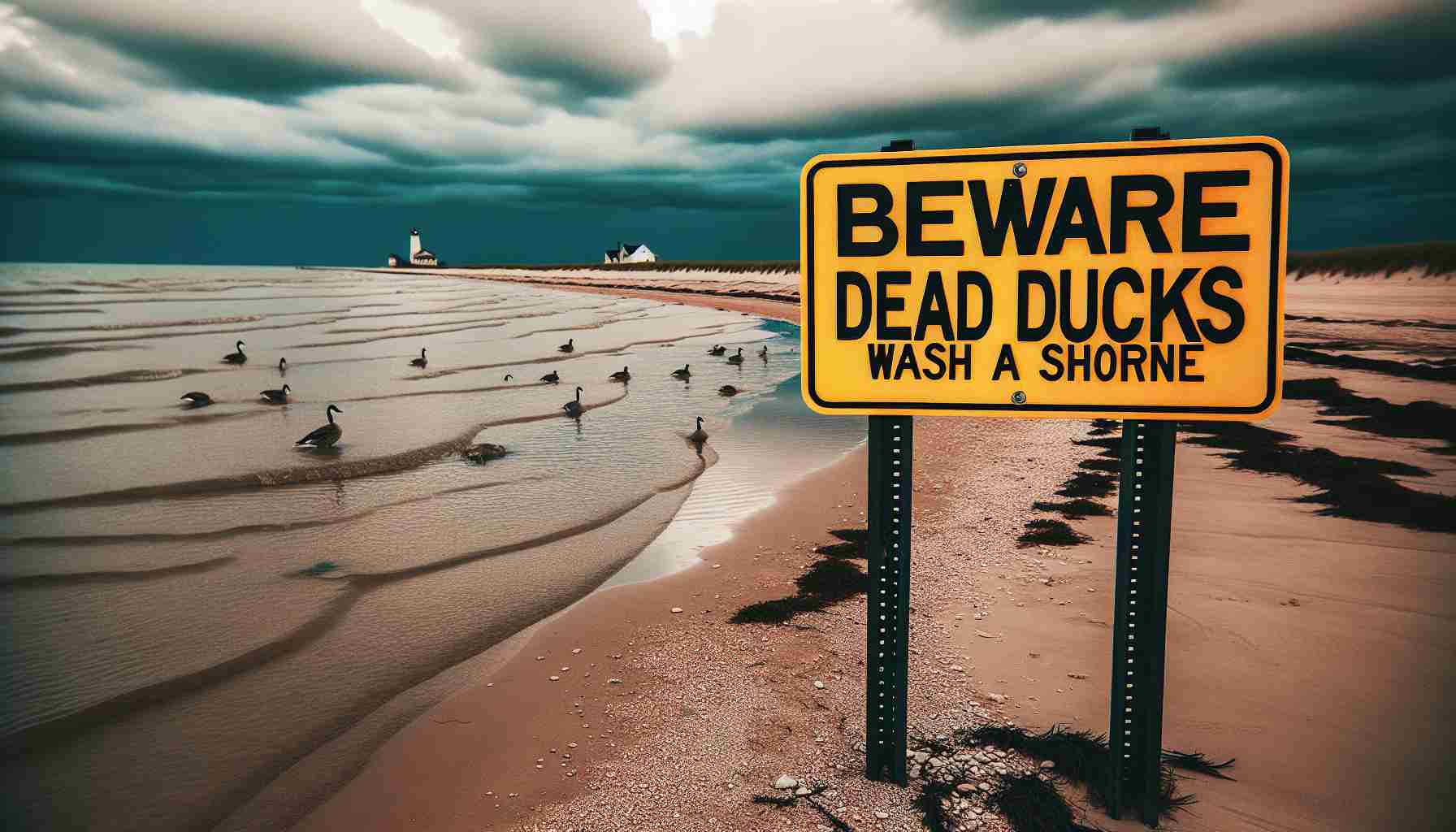- Over 40 dead ducks found at Whihala Beach, raising health concerns among residents.
- Potential link to bird flu, a virus that can affect both birds and humans.
- Officials recommend avoiding the shoreline until further notice.
- Dead birds in nearby Chicago highlight the widespread impact of this issue.
- Do not handle dead or sick birds; they may transmit viruses.
- No confirmed human cases of bird flu reported in Indiana or Illinois yet.
- Community safety measures are being implemented to protect public health.
- Keep pets leashed to prevent contact with wildlife.
Whiting, Indiana, is sounding the alarm as over 40 dead ducks mysteriously washed up at Whihala Beach this past Wednesday, horrifying local residents. With concerns swirling around the potential of bird flu, officials are urging everyone to steer clear of the shoreline for safety.
The CDC indicates that ducks and other waterfowl are natural carriers of this virus, which can pose a risk not only to other birds but also to humans. Workers from the Whiting Parks Department acted swiftly, collecting a couple of ducks for testing by Indiana’s Department of Natural Resources, while the rest were promptly cleared—though some had unfortunately frozen to the ice.
As distressing reports spread, similar incidents emerged just a stone’s throw away in Chicago, where several beaches witnessed the unsettling sight of dead birds. Officials from the Illinois Department of Natural Resources stressed the importance of not handling these animals, as infected birds can transmit the virus through their saliva and waste.
This bird flu outbreak has already claimed the lives of several wildlife, including a bald eagle and a Chilean flamingo, raising alarms among both residents and wildlife authorities. As of now, there are no confirmed cases of human infection in Illinois or Indiana, but authorities are taking precautions to keep the community informed and safe.
The takeaway? Avoid Whihala Beach and leash your pets to prevent any contact with the disturbed wildlife. Your health is paramount, so stay vigilant!
42 Mysterious Duck Deaths Spark Health Alert: What You Need to Know!
Recent Developments in the Whiting Duck Deaths
The recent discovery of over 40 dead ducks at Whihala Beach has shaken the community, prompting urgent warnings from local officials. As testing continues on the collected birds, there is mounting concern over avian influenza, commonly known as bird flu. This incident, which horrified local residents, has similar echoes in nearby Chicago, where several beaches have reported dead birds, escalating fears of a wider avian health crisis.
How to Stay Safe Amid Bird Flu Concerns
Understanding the implications of this outbreak is crucial. Here’s what you need to know:
– Precautionary Measures: The CDC emphasizes avoiding areas with dead wildlife, particularly waterfowl. If you encounter dead birds, do not touch them. Instead, report the sighting to local wildlife authorities for proper handling.
– Potential Human Risks: While the risk of human infection is currently low, avian influenza remains a concern, especially in regions where outbreaks are common. The CDC advises maintaining distance and ensuring pets are leashed to prevent contact with affected wildlife.
Related Information
1. Health Implications of Bird Flu: Bird flu poses significant risks as it can mutate and potentially infect humans. Understanding the symptoms and transmission methods is essential. Key symptoms in birds include respiratory distress and sudden death.
2. Public Safety Protocols: Local health departments are conducting outreach to educate the public on identifying symptoms and reporting dead birds, emphasizing safety through awareness.
3. Long-term Monitoring and Testing: The ongoing surveillance of wildlife populations is crucial for early detection and management of potential outbreaks. Tests from the dead ducks can provide insights into the strain of the virus present in the area, influencing public health responses.
FAQs
Q1: What should I do if I find a dead bird?
A1: Avoid physical contact and report it to local wildlife authorities or the health department. They have protocols for safe collection and testing.
Q2: Are there confirmed cases of bird flu in my area?
A2: As of now, there are no confirmed human cases in Illinois or Indiana related to this outbreak. However, keeping informed through local health updates is essential.
Q3: How can I protect my pets during this outbreak?
A3: Keep pets on leashes and avoid letting them interact with wildlife, especially near known incident areas. This minimizes the risk of them coming into contact with potentially infected animals.
For further updates and information, visit CDC’s official website or Indiana Department of Natural Resources.
